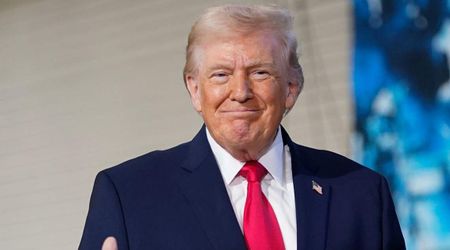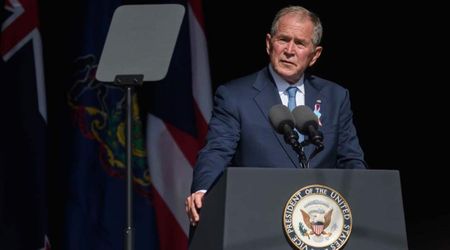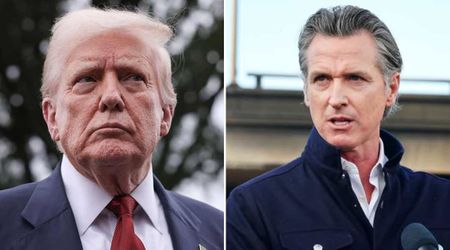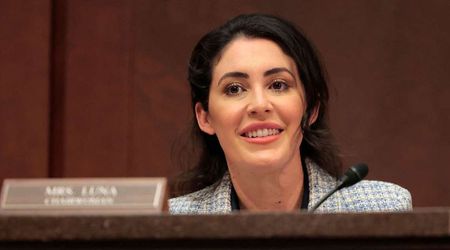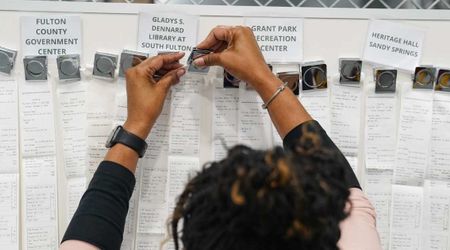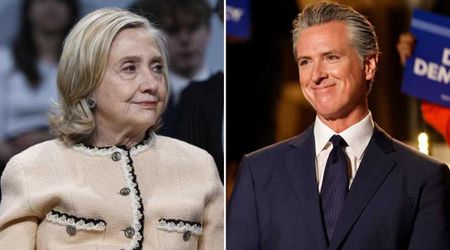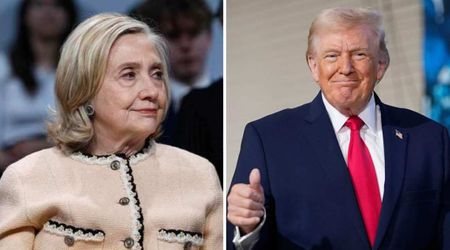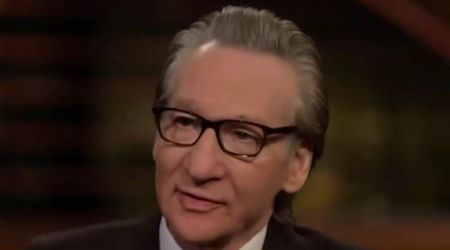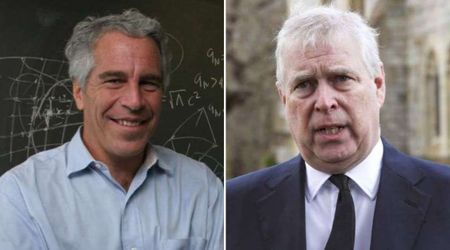Jamal Trulove says Kamala Harris laughed after he was wrongfully sentenced to 50 yrs in prison for murder

SAN FRANCISCO, CALIFORNIA: In a poignant retelling of his wrongful conviction experience, actor and filmmaker Jamal Trulove has opened up about his encounter with Kamala Harris, who was then the San Francisco District Attorney.
Trulove’s story is one of grave injustice, police misconduct, and the emotional aftermath of being wrongfully convicted of a crime he did not commit. His account sheds light on Harris’s role in the criminal justice system, raising questions about her actions and decisions during her tenure as a prosecutor and later as Attorney General.
Jamal Trulove's surreal encounter with Kamala Harris
In a recent interview on 'The Art of Dialogue', Trulove recounted the fateful day in 2010 when he was convicted of first-degree murder, a charge for which he was later acquitted. Reflecting on that day, Trulove described a moment that has lingered with him for years—the moment he locked eyes with Kamala Harris.
As the verdict was announced, Trulove turned to see Harris, who was present in the courtroom. To his shock, he saw her laughing. “When they came with the verdict guilty … I turned around, and I looked, and I saw Kamala Harris,” Trulove recalled. “We locked eyes this one time, and she laughed.”
This reaction, according to Trulove, was both unexpected and deeply unsettling. He emphasized the dissonance between the gravity of the moment and Harris’s apparent amusement, saying, “She literally just, like, kind of busted out laughing.”
This was particularly jarring for Trulove, who had hoped that Harris, as a Black district attorney from the East Bay, might be more sympathetic to his plight and the broader concerns of his community.
However, Trulove felt that Harris had already made up her mind about his guilt. “It was strictly: ‘You did this, we are charging you, you’re going down,’” he said, reflecting on what he perceived as a lack of openness to the possibility of his innocence, the San Francisco Standard reported.
Jamal Trulove's wrongful conviction
Trulove’s story is a harrowing example of the failures of the criminal justice system. A rising star in entertainment, having appeared on VH1’s reality show 'I Love New York' in 2007, Trulove was framed by the police in a case of mistaken witness identification for the murder of Seu Kuka.
The wrongful conviction led to Trulove being sentenced to 50 years in prison. He spent nearly seven years behind bars before his conviction was overturned, and in 2015, he was acquitted of all charges after successfully appealing for a second trial.
In recognition of the injustice he suffered, Trulove was awarded $13.1 million from San Francisco—a small consolation for the years lost behind bars.
Despite this, the emotional scars and the memories of his wrongful conviction continue to haunt him. His experience has profoundly shaped his views on the criminal justice system and the figures who operate within it, including Kamala Harris.
Trulove’s disillusionment with Harris extends beyond their courtroom encounter. He has publicly criticized her for what he sees as a pattern of behavior that prioritizes political expediency over justice. His experience with Harris during his trial is emblematic of his broader critique of her career as a prosecutor and later as Attorney General of California.
Harris’s tenure as a prosecutor has been a subject of intense scrutiny, particularly as she has risen to national prominence. While she has branded herself as a “progressive prosecutor,” her record tells a more complicated story.
As San Francisco’s District Attorney, she gained attention for pledging never to seek the death penalty, a stance that set her apart from many of her contemporaries. She later wrote a book, Smart on Crime, advocating for a shift away from the “tough on crime” policies of the past and towards a more rehabilitative approach.
However, Trulove and other critics argue that Harris’s actions often fell short of her rhetoric. They point to instances where she could have intervened in cases of wrongful conviction but chose not to.
For example, Kevin Cooper, who remains on death row, and George Gage, who is serving a life sentence, are two individuals whose cases have been cited as examples where Harris could have made a difference. In both cases, Harris had the power to demand DNA testing or acknowledge prosecutorial misconduct but declined to do so.
Kamala Harris’ contentious career in criminal justice
Harris’s record on criminal justice has been a point of contention throughout her political career. As Attorney General, she faced criticism for her reluctance to hold police and prosecutors accountable for misconduct.
In Orange County, a scandal involving jailhouse informants undermined the legitimacy of the county’s criminal justice system, yet Harris’s office was criticized for its lack of meaningful oversight.
In addition, Harris’s stance on various criminal justice issues has been seen as inconsistent. For instance, when the Legislative Black Caucus called on her to support bills mandating body-worn cameras for police officers and independent investigations into officer-involved shootings, she declined.
She also supported laws that targeted the parents of truant children and defended the money bail system, both of which disproportionately impact poor communities and people of color, per The Appeal.

These actions have led some to question the authenticity of Harris’s commitment to criminal justice reform. While she has embraced more progressive positions in recent years, critics like Trulove argue that these shifts have come only after they became politically safe.
Trulove has since voiced his support for Donald Trump, despite not being a registered voter according to public records.
In a YouTube video posted on his own channel, Trulove made his position clear, “And if you’re wondering if I’ll be voting for Kamala ‘Laugh-and-Lie’ Harris, fuck no!” He continued, “Donald Trump! Big Trump! I’m rockin’ with Trump!”


